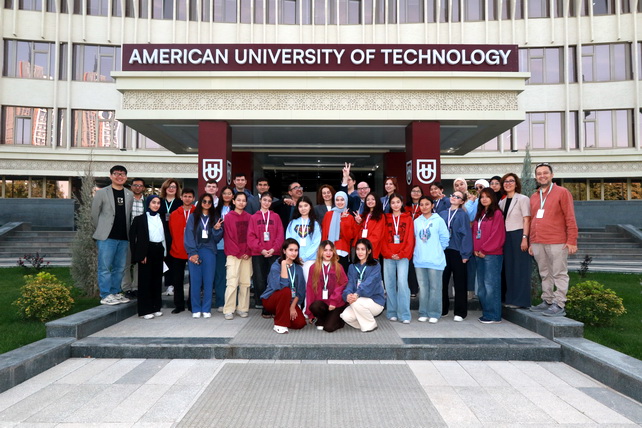
“Build, Launch, Inspire: UniSat 3.0 Girls Aim for Space”
“Build, Launch, Inspire: UniSat 3.0 Girls Aim for Space”
Tashkent, Uzbekistan (UzDaily.com) — At School No. 11 in the village of Shege, Muynak District, two nanosatellites assembled by participants of the educational program UniSat 3.0 were successfully launched. The project was implemented with the support of national and international experts, scientists, and engineers.
This year, 845 girls aged 14 to 25 from all regions of Uzbekistan applied to join the program. The participants completed the online UniSat course, which covered satellite construction, programming, radio electronics, data analysis, astronomy, 3D modeling, and engineering. In addition to theoretical training, they attended meetings with aerospace engineers, astronauts, IT specialists, and science communicators.
Mentors for the participants included graduates of the first UniSat 1.0 cohort, Nodira Tillyaeva and Diyora Daminova, who continue their studies in aerospace technology and data analysis and have completed internships at the UzKosmos agency.
From September 30 to October 3, twenty finalists worked in the laboratories of the American Technological University, where they assembled two three-unit nanosatellites.
The satellites are equipped with sensors to measure air quality, temperature, ozone density, and radiation levels in the stratosphere, as well as cameras capable of capturing high-resolution images of Earth for environmental and geophysical research. The collected data will be used to build a library of stratospheric temperature observations over the Aral Sea region.
In addition, in collaboration with biodiversity specialists, the participants designed a series of biological experiments using fungal spores, proteins, worms, and mold.
The UniSat program is implemented in partnership with UNICEF, the NGO Tech4Impact, and the Space Research and Technology Agency under the Ministry of Digital Technologies of the Republic of Uzbekistan. Its goal is not only to provide girls with practical STEM knowledge but also to develop teamwork, communication, and leadership skills, while raising public awareness about gender equality in science and technology.
Inna Wolfson, Adolescent and Youth Development Advisor at UNICEF Uzbekistan, emphasized:
“We believe that initiatives like UniSat change the lives of young girls by helping them believe in their own abilities and see that science and technology are open to everyone. UniSat not only provides education but also inspires young women to pursue careers in innovation, shaping a new generation of female leaders who will contribute to the country’s development.”
Since 2021, the UniSat program has reached more than 700 girls across all regions of Uzbekistan, giving them access to modern knowledge and skills in science and engineering.
Significance of the Program
The implementation of the UniSat project marks an important step in developing the national STEM education system and fostering a new generation of young professionals in space technologies.
The program promotes greater participation of girls in scientific and technical disciplines and nurtures a lasting interest in engineering and research careers.
In the long term, such initiatives help build the human capital needed for Uzbekistan’s innovation-driven economy, supporting the country’s strategic priorities in digitalization, high technology, and science.